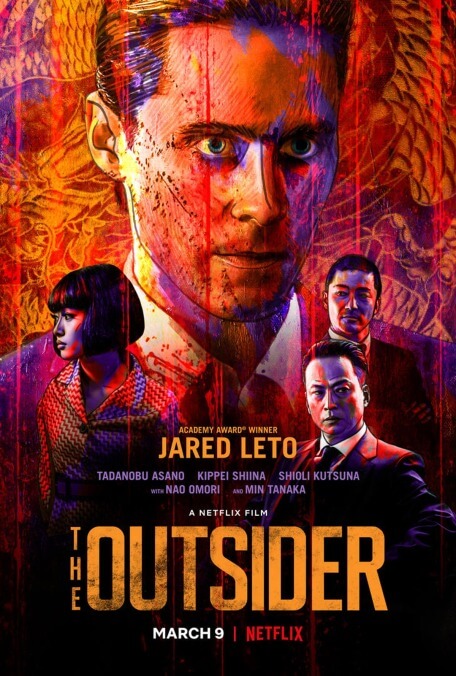Netflix’s The Outsider is the generic Jared Leto yakuza thriller no one wanted

Apparently, Netflix’s algorithm has identified a sizable chunk of viewers who are curious about Japanese yakuza, or gangster, movies but unwilling to watch anything that doesn’t star a recent Oscar winner. That’s the most plausible explanation for The Outsider, in which Jared Leto anchors what is otherwise, beat for beat, one of the most tediously generic yakuza stories imaginable. It’s basically Takeshi Kitano’s Outrage, except that the most notable outrage here involves offscreen accusations of whitewashing. To be fair, Leto’s ostensibly reassuring but historically inexplicable presence is hardly this film’s biggest problem; it’d be every bit as bland even without him front and center, carefully voiding his face of all expression in a failed effort to embody a stoic badass. One might credibly postulate, though, that the American screenwriter (Andrew Baldwin, who previously penned The Take) and Danish director (Land Of Mine’s Martin Zandvliet) have a little something to do with the film’s been-there-severed-that quality.
Set in 1954 Osaka, The Outsider does at least commendably avoid wasting time explaining what its hero, Nick Lowell (Leto), is doing in Japan. As the movie begins, Nick is already serving time in a Japanese prison, for reasons never specified. His cellmate, Kiyoshi (the great Tadanobu Asano—“as seen in all the Thor movies!”), happens to be a yakuza bigwig, and enlists Nick in his escape plan, which involves attempting seppuku in order to be transferred to the more easily penetrated infirmary. All Nick does is briefly press his hands on the belly wound and yell for the guard, but he’s rewarded, upon his own release, with the job of silent yakuza muscle, forever on hand to punch some recalcitrant salaryman in the throat or beat him over the head with a manual typewriter. Eventually, this gaijin (the Japanese word for anyone who’s not Japanese, frequently hurled like a weapon) becomes so indispensable that he’s fully accepted as a member of the family, assisting them in an increasingly violent turf war against a rival family. Nick even gets Kiyoshi’s blessing to marry his sister (Shioli Kutsuna), albeit only after he knocks her up.
It’s possible that The Outsider will be gruesomely enticing for Netflix’s hypothetical audience of yakuza neophytes. All of the genre’s greatest hits are represented, from the betrayal of a trusted right-hand man to someone chopping off the tips of his fingers as a ritual expression of remorse for a screwup. Everything on the checklist feels utterly rote, though, especially with Leto occupying an emotional void at the movie’s core. Nick remains an anti-charismatic cipher even when his past catches up with him, courtesy of a ludicrous scene in which he randomly stumbles upon an old U.S. military pal, played by Emile Hirsch. (Pro tip: If someone declines to invite you to his home, then changes his mind and extends an invitation two seconds after you’ve threatened to have him arrested for desertion, do not go.) Asano and the rest of the Japanese cast provide baseline credibility, but they can’t generate excitement from this morass of clichés. Plenty of genuine yakuza movies (including Takashi Miike’s insane Yakuza Apocalypse—admittedly not representative—and Kinji Fukasaku’s epic Battles Without Honor Or Humanity) are available for streaming. Do yourself a big favor and find one of those.